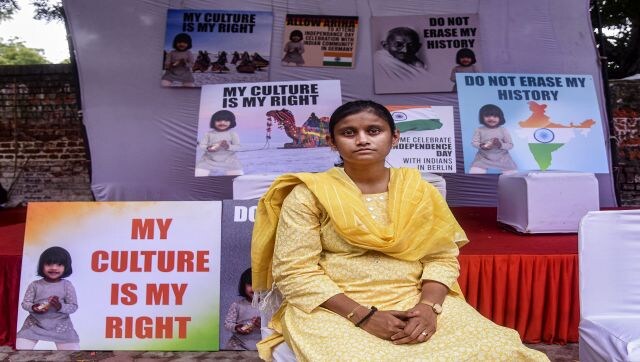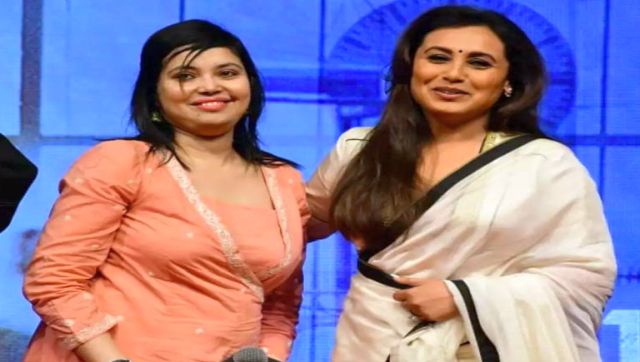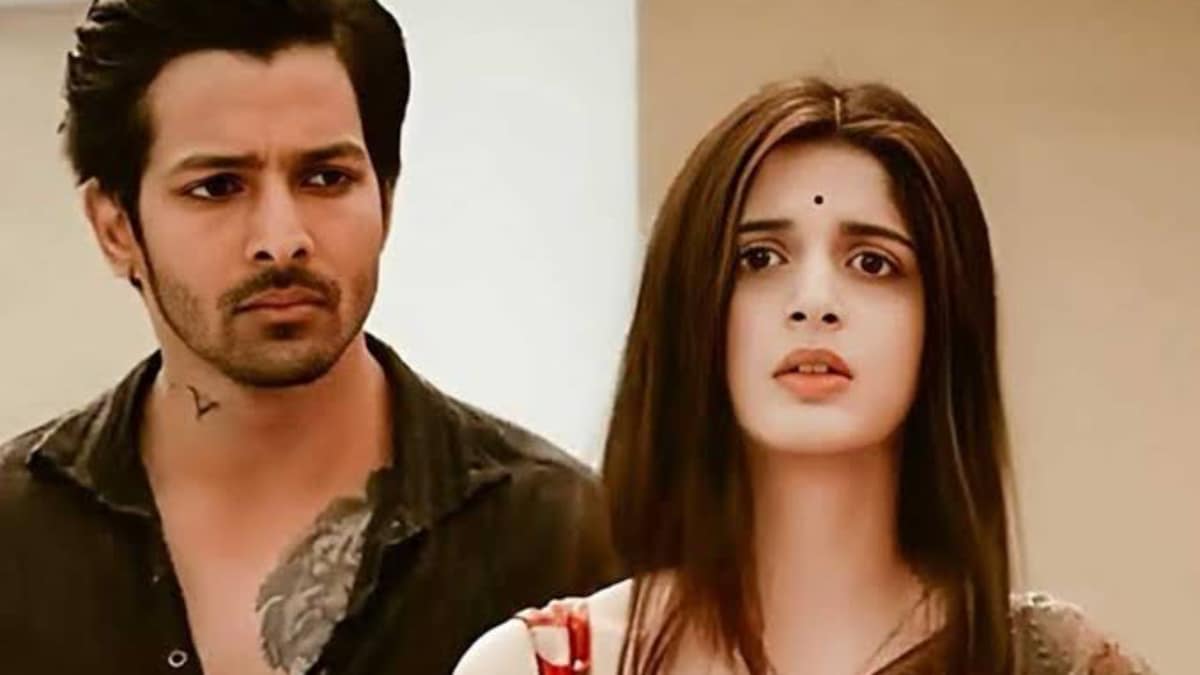The tragic tale of NRI woman who died amid child custody battle with Australia
The tragic tale of NRI woman who died amid child custody battle with Australia

First came the case of Sagarika Chakraborty vs Norway. Then came the case of baby Ariha in Germany and now comes the matter of Priyadarshini Patil and Australia. All three matters highlight child custody cases in foreign countries involving Indian or Indian-origin parents and their struggles.
The latest case is of 40-year-old Indian-origin woman, Priyadarshini Patil, who died by suicide, after learning that an online hearing for the custody battle of her two children in Australia was deferred to November.
We take a closer look at this tale of tragedy and also dig deeper into how Indians or Indian-origin parents struggle with child welfare services of other countries.
Patil’s custody battle and demise
Forty-year-old IT employee Priyadarshini Patil was married to Lingaraja Patil, a techie based in Sydney, and the couple had two children — son Amartya (17) and daughter Aparajita (13).
The teenage children were removed from their parents’ custody in 2021 after Amartya was admitted to a hospital in New South Wales, with media reports saying that he suffered from ulcerative colitis – an inflammatory bowel disease causing inflammation and ulcers in the digestive tract.
Six months into treatment when the Patils felt there was no improvement in Amartya’s condition, they sought a medical transfer. However, the request was refused and a child protection case was triggered. The doctors at the hospital filed a complaint to child welfare against Patil allegedly accusing her for improper care given to the children at home causing the illness.
Reacting to the hospital’s complaint, officials from Australia’s child welfare services met with the parents and inspected their house, and according to an NDTV report, submitted six positive reports. However, in the seventh they made a U-turn and took the two children into custody.
During her custody hearings, Priyadarshini Patil asked the Australian government to withdraw the citizenship of her children so that she could take them back to India, but received no response from them.
Feeling helpless and depressed about the situation, Priyadarshini left Australia on 18 August and said that she was returning to India to her parents – retired professor SS Desi and Shibha – who reside in Karnataka’s Dharwad. However, she never made it home. Instead of heading to her hometown, Patil made her way to Belagavi and killed herself by jumping into the Naviluthirtha reservoir in Savadatti.
Before dying, she sent off her bags to her parent’s address. And on investigating, they found a note in which she outlined her grief and struggles over the custody battle.
Her note read: “Our lives are threatened. I am compelled to end my life for the survival of my children and husband Lingaraj. I am accepting my death for the good of my family. From 2021 to the present day DCJ (Australia’s Department of Communities and Justice) has ruined my family. The residents of Verlie Street in Sydney have harassed us.”
Patil’s letter also mentioned that the family of a police officer had been troubling her and they had poisoned the water supply to her house. “Anand Goru, Ajitha Goru, Srinidhi Goru, Jabbur and family, Daniel and family, Raymond and his children, Tanya and the whole family, police officer and family… are all responsible for my death.”
SS Desai, the victim’s father, has filed a complaint with the Dharwad police, alleging that his daughter died by suicide because she was distraught about her son. He would fight against the injustice done to his daughter through the Indian government, he was quoted as telling The Federal.
Priyadarshini’s husband and father have now called for the Ministry of External Affairs to intervene in the matter. “As Priyadarshini (now deceased) and I had earlier asked, I requested the officials to carry out the assessment for both myself and the maternal grandparents in India simultaneously so that there is no further delay in resolving the issue of custody”, Lingaraja told The Hindu, adding that it was the delay in the case that had driven Patil to take her own life during a visit to her parents in Dharwad.
However, the Ministry of External Affairs (MEA) is yet to comment on the case.
Meanwhile, the Australian government has taken note of the matter and expressed their condolences and reviewing the case. “We are greatly saddened by the death of an Australian woman in India. We offer our deepest condolences to the family during this difficult time,” said the Australian High Commission spokesperson in Delhi, adding that the “Australian Department of Foreign Affairs and Trade (DFAT) has provided consular assistance to the woman’s Australian family.”
Reminiscent of other cases
The Patils’ struggle in Australia is very similar to what Ariha Shah’s parents are going through in Germany against the Jugendamt and the battle that Sagarika Chakraborty waged against the Norwegian government to win custody of her two children, that spawned the Rani Mukerjee-starrer Mrs Chatterjee vs Norway.
Child rights lawyer Suranya Aiyar is of the opinion that the cases are part of a pattern where “Indians and Indian-origin newcomers to rich G20 countries are persecuted by their child services,” due to cultural differences.
Speaking to NDTV, she added, “What we are seeing, again and again in these cases, is that the system is not able to respond to the plight of families, and particularly children, who are either Indian citizens or are new arrivals in a foreign country. And once they are taken away from the parents or, as in this case, once the parental rights have been severely constrained, there have nowhere to go… and the children are, essentially, held hostage by foreign child services authorities.”
It is indeed tragic that Indian parents are struggling with officials of child protection services in foreign countries. The most recent example is that of Bhavesh Shah and his wife Dhara battling a case against Germany’s childcare services, Jugendamt, for the custody of their child, Ariha.

In 2021, they had taken a seven-month-old toddler, Ariha, to hospital with a perineal injury — an injury in the genital region. Despite them explaining that the baby had suffered the injury accidentally, the German authorities suspected it to be a case of sexual assault and took her away from her parents on 23 September.
The matter has caught the attention of the MEA as well as others and has been widely reported in and outside of India. The MEA also summoned German Ambassador Philipp Ackermann and called for early repatriation of the Indian baby girl earlier in August.
This came after Opposition women lawmakers, including Congress’s Rajani Patil, NCP leaders Supriya Sule and Vandana Chavan, Samajwadi Party Rajya Sabha member Jaya Bachchan and Shiv Sena (UBT) Rajya Sabha member Priyanka Chaturvedi had met External Affairs Minister S Jaishankar over the case.

The other infamous case is that of Sagarika Chakraborty and the Norwegian authorities. In 2011, the Norwegian Child Welfare Services, known as the Barnevernet, had taken away Sagarika’s two children – Aishwarya and Abhigyaan – on allegations of “improper parenting”. Allegations against the Chakraborty included sleeping on the same bed as their children, hand feeding (which was seen by Norwegian authorities as force-feeding) and also corporal punishment (Sagarika had allegedly slapped the children once). While these things might seem “normal” in the Indian context, for the Norwegian authorities, it was anything but that.
It was only after then External Affairs Minister SM Krishna’s meeting with his Oslo counterpart that the children were moved into the custody of a paternal uncle back in India, 27-year-old dentist Arunabhas Bhattacharya. It was only in 2013 did Sagarika finally was granted custody of her children. She later penned a book titled Journey of a Mother, which was made into a movie titled Mrs Chatterjee vs Norway in March this year.
A collection of Suicide prevention helpline numbers are available here. Please reach out if you or anyone you know is in need of support. The All-India helpline number is: 022-27546669
With inputs from agencies






















